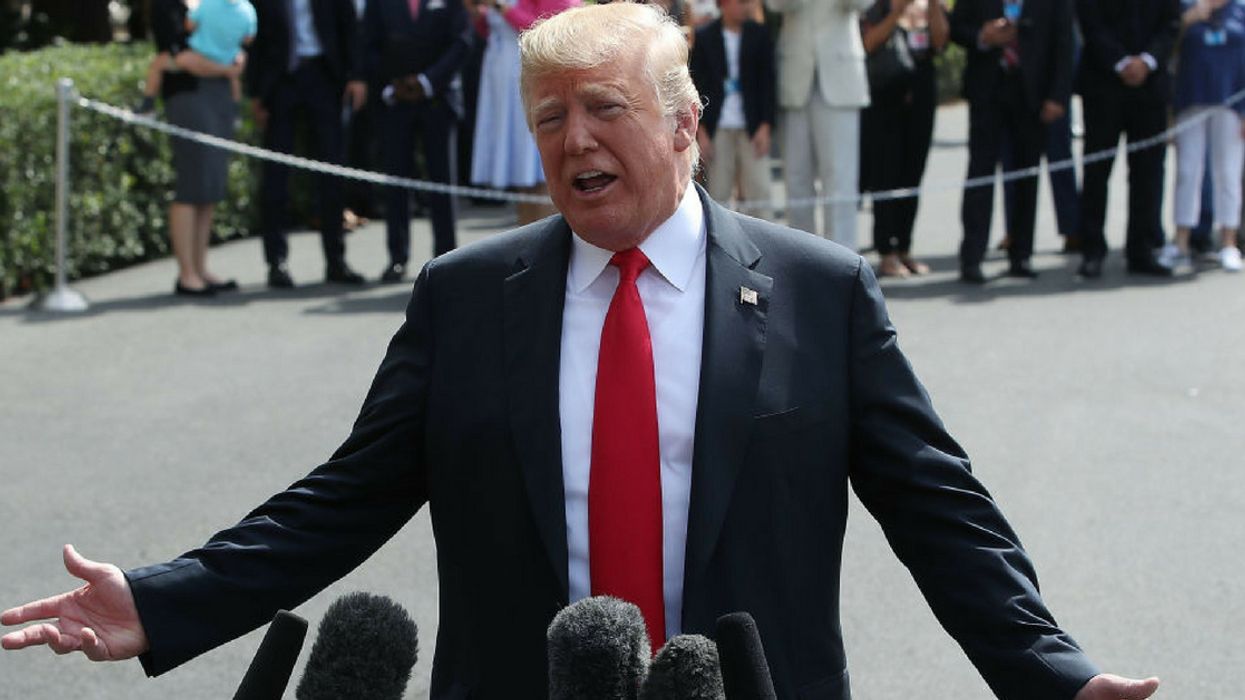Last month, U.S. District Judge Peter J. Messitte ruled in favor of moving forward with a lawsuit filed by the Attorneys General of Washington DC and Maryland.
The lawsuit questions whether or not Trump International Hotels are a breach of the constitution's emoluments clause.
Messitte's ruling hinged on the definition of "emoluments". The Department of Justice (DoJ) headed by Trump appointee Jeff Sessions tried to have the lawsuit dismissed.
The DoJ defined the term as compensation given to the president in exchange for favors or services from Trump.
However, Attorneys General Brian Frosh of Maryland and Karl Racine of DC argued that emoluments referred to any sort of profit, gain or advantage Trump received from his hotel.
In his ruling, Messitte wrote,
"[The president's] narrow interpretation of the word 'emolument' would reduce the clauses to little more than a prohibition of bribery which, in addition to already being addressed elsewhere in the Constitution, is, as plaintiffs argue, a very difficult crime to prove,".
DC Attorney General (AG) Karl Racine tweeted about their victory.
But on Friday, the DOJ moved again to halt the lawsuit. They asked a federal judge to allow them to file an appeal that would keep Trump's financial records under wraps until they can appeal Messitte's ruling to a higher court in Richmond, Virginia.
AG Racine tweeted that he and Maryland Attorney General Brian Frosh anticipated this move.
The DoJ also argued that putting the lawsuit on hold is in the public interest because
"any discovery would necessarily be a distraction to the President's performance of his constitutional duties"
Twitter found this argument laughable.
Others find it preposterous that the Department of Justice is even involved in Trump's defense.
While private citizens cannot decide what cases the DoJ takes or who they choose to defend, they can make their voice heard in the midterm elections.
Register to vote here.
H/T: The Hill, Washington Examiner, Law.com
















 @JaJa_no_NO/X
@JaJa_no_NO/X @CWMorgan1000/X
@CWMorgan1000/X reply to @spain2323/Instagram
reply to @spain2323/Instagram reply to @spain2323/Instagram
reply to @spain2323/Instagram reply to @spain2323/Instagram
reply to @spain2323/Instagram reply to @spain2323/Instagram
reply to @spain2323/Instagram reply to @spain2323/Instagram
reply to @spain2323/Instagram reply to @spain2323/Instagram
reply to @spain2323/Instagram reply to @spain2323/Instagram
reply to @spain2323/Instagram reply to @spain2323/Instagram
reply to @spain2323/Instagram reply to @spain2323/Instagram
reply to @spain2323/Instagram reply to @spain2323/Instagram
reply to @spain2323/Instagram reply to @spain2323/Instagram
reply to @spain2323/Instagram reply to @spain2323/Instagram
reply to @spain2323/Instagram reply to @spain2323/Instagram
reply to @spain2323/Instagram reply to @spain2323/Instagram
reply to @spain2323/Instagram reply to @spain2323/Instagram
reply to @spain2323/Instagram reply to @spain2323/Instagram
reply to @spain2323/Instagram